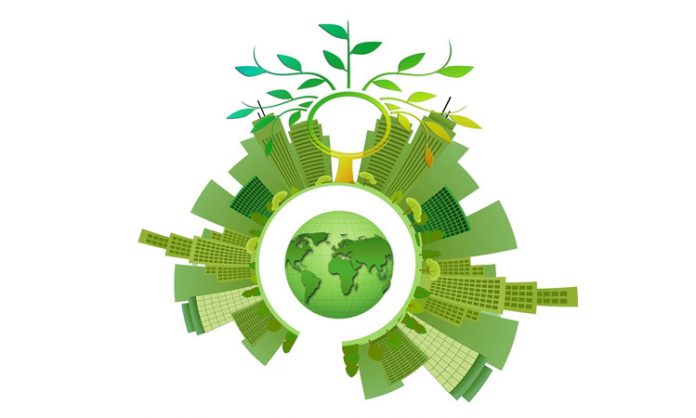The planet and everyone on it are in a vulnerable state right now. A pandemic is destroying people’s lives and families, and people have lost their jobs. Communities and states are in shambles. Greenhouse gases, smog, littering and plastic waste are destroying the planet that we live on.
Jay Antle, Executive Director for the Center for Sustainability, said it’s time to start focusing on the planet in this vulnerable state when things can be changed.
“At least philosophically I can make an argument that a topic on the subject of sustainability is more important now than ever because COVID-19 did not come from outer space, it came from nature and it came from the interaction of people and the natural world and it didn’t go well,” Antle said. “We talk about land use patterns and appropriate interactions between economy and ecology, this pandemic is a result of one that didn’t go well.”
The mourning of this pandemic will be everlasting. People will be affected by it long after this wave is through. There will be changes made in all different aspects of life and sustainability is one of the things that will need to see change.
“Sustainability is about how ecology, economy, and equity kind of all fit together or sometimes don’t,” Antle said. “Sustainability has a broad way of looking at a world through these systems which is important now than ever and this pandemic proves it. So, my sense of it so those topics of climate change and stuff like that really need to be stepping up because this is evidence of what happens when people don’t pay attention.”
During this pandemic, there have been positive environmental progress because of stay at home orders. Due to many countries ordering their citizens to remain at home, some climates have seen an increase in wildlife. Smog and pollution levels have also seen a significant decline with many major cities having clear skies for the first time in years. However, many governments have plans to slowly reopen in the upcoming months, making it only a matter of time before these positive environmental changes go away.
“There’s a reason they call what we do sustainability,” Kristy Howell, Director of Education and Engagement for the Center for Sustainability, said. “It’s because we work to make changes that can be sustained in the long run or improved. What’s happening right now is not sustainability we are seeing changes that are amazing and remarkable and eye opening, but we cannot continue those changes. This is not the way to do it. What we can use is the good, positive, hopeful feeling when we see the Himalayas in cities that haven’t seen them because of smog, we can see those things and use those as inspiration to make changes to our society that can be sustained for future generations.”
A person does not have to make catastrophic changes to their daily life right now to help the environment. Everyone is in the same boat of being stuck at home not able to go out and spend free time at restaurants or shopping. Howell believes that right now people have the power to make changes in their own home.
“I think that the big one is right now our consumption and waste patterns have really shifted away from campus to our own homes,” Howell said. “So, in reality we have a lot more control over the kinds of waste we participate in and the creation of so we can make really thoughtful well considered decisions about things that are going on in our own homes and reduce our amounts of waste.”
Student and member of the Student Sustainability Committee, Juan Bocanegra, said he’s anxious about what will happen to the environment when stay at home orders are lifted because everyone wants to leave their homes.
“There has been a positive change on the environment, but it could all change for the worse so quickly,” Bocanegra said. “A friend of mine asked me, where was the first place I was going to go after this, and I was taken back. I remember just looking over at them and thinking how many others are thinking the same way. If many others are thinking like this then what little change has been done for the benefit of the environment could be lost due to people wanting to be everywhere.”
By Gracyn Shulista






















